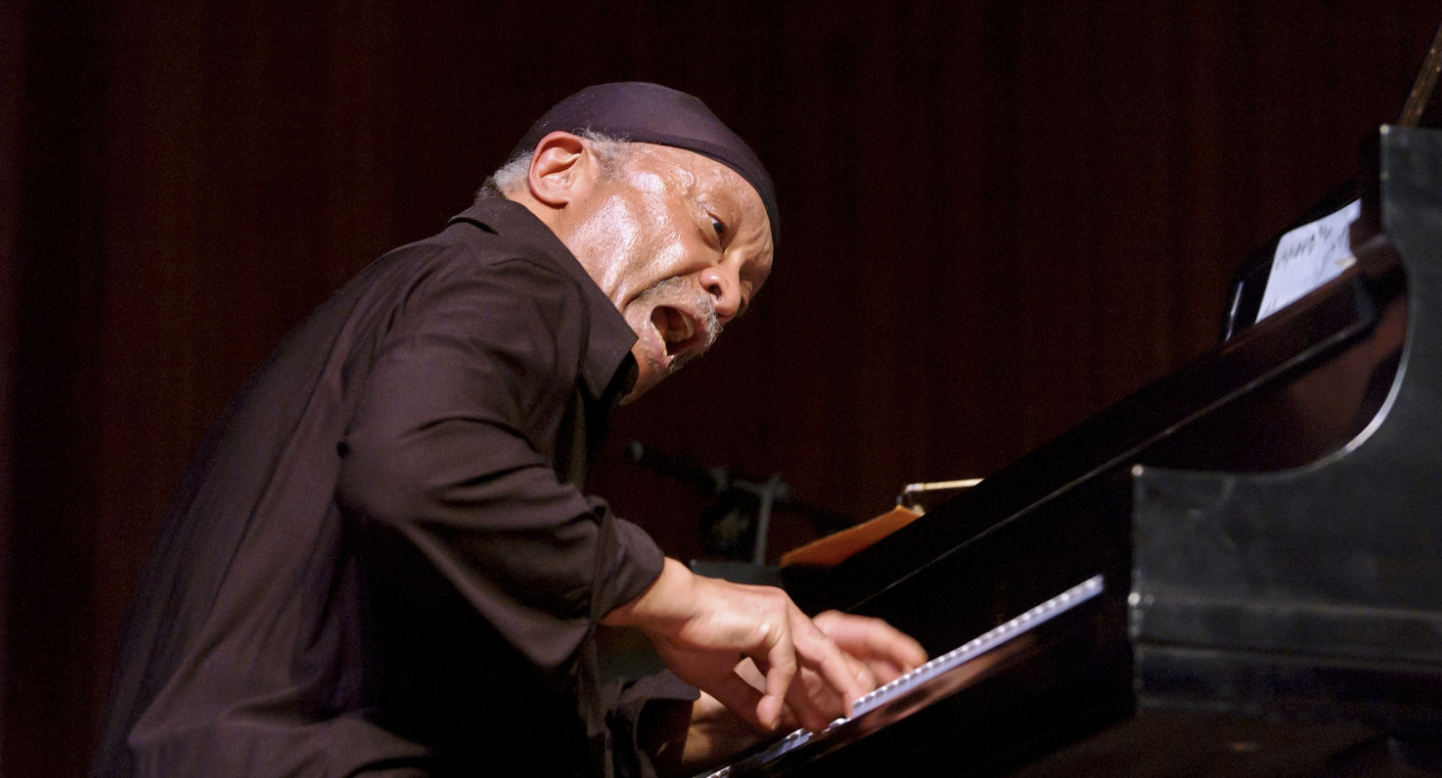
06 Apr On Cecil Taylor and Knowing It All
[photo Jack Vartoogian/Getty Images]
In my recent youth, me and Mark Neary were typical arseholes. We knew it all. Tinkling his parents Young Chang during a break from a Trimmed Naval Beef rehearsal, we hatched a scheme.
“What if we just made posters that said GORD NEARY: ONE NIGHT ONLY?”
Mark’s dad, to the best of my knowledge then and now, is not a musician in any way. But punks that we were, we thought we could take a bite out of the avant-garde scene by making everyone think Gord’s improvisations would be must-hear music. (I didn’t know what avant-garde was then and I definitely don’t now). Surely, we could fool folks into believing not only is this good music, but it is truly great music.
“Did you hear the Gord Neary is playing in town? How did they book him? Tickets are only $175?”
My entire life is different now but I look back on that previous person with a kind heart. Now I’m only hungry for unknown music. Genres bore me. Style constrains. I loathe the term “music” except when it is exclusively a verb. I would pay to hear Gord play because I bet it would be without pretense or too much awareness. Give me unlimited unlimitings.
Cecil Taylor died yesterday. Perhaps more than any other musician I can think of, including Ornette or Coltrane, Cecil proved there are no limits within. The only language is your own. A drummer friend of mine called Cecil’s music “constant climax.” That’s a perfect description. Form and timbre are indistinguishable. Authority and empathy merge. To me, his music fuses hope and anger. Each gesture an ungentle birth of “need.”
You must surrender whatever preconceptions you have about music if you’re really interested in it.
Rhythm is the life of space of time danced through.
If you take the creation of music and the creation of your own life values as your overall goal, then living becomes a musical process.
You know, when you see a really great artist, all time stops . . . empires fall, but the highest achievements of empires are really what the artists create within them. Some art work transcends the dominance of empires.
– Cecil Taylor (1929–2018)






